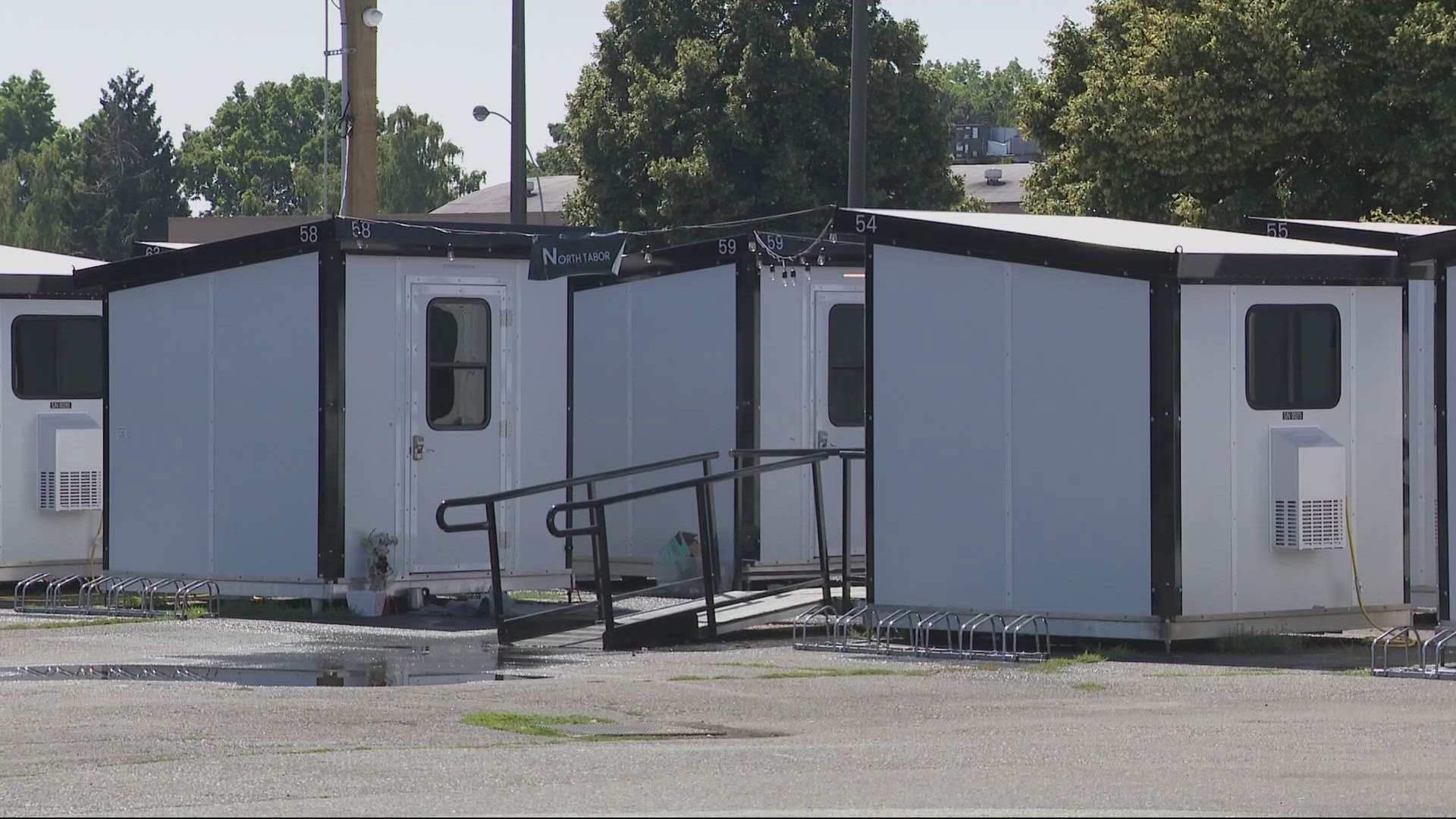PORTLAND, Ore. — In a large temporary shelter site off Southeast Powell Boulevard, David starts over. He’s been homeless for seven years, and this winter, moved into a tiny home. He is now on the waitlist for permanent housing.
His tiny home gives him a sense of pride: he cleans it and makes his bed each morning so it stands out from the rest.
"It's given me my self-respect back, my self-esteem back," David said.
Recently, the team behind the site, the city of Portland and their contractor Urban Alchemy, housed 60 people just like David within two months, all thanks to Multnomah County housing vouchers to cover one year of rent.
"These specific vouchers came with case management. We've seen that's the most successful model for keeping folks housed and making sure they're really successful," said Skyler Brocker-Knapp, the director of Portland Solutions, a new city bureau overseeing several programs meant to address the homeless crisis, including shelter services and camp removals.
"We have a very motivated care-coordination team ... We walked them through every step of the way," said Jeffers Dickey, Urban Alchemy's operations director.
"The goal is to move them through whatever services they need to get off and stay off the streets," said Mayor Ted Wheeler. "This is a model that works. It's one that others around the country are taking a look at. It's one that we're expanding here in the city of Portland."
However, that goal is not always met.
An example of that is Andy Joens, who lives in a red tent on Portland's central eastside. Joens has been homeless for about 15 years and moved to Portland from California to escape heroin and turn his life around.
"My old ways are stealing cars, selling drugs, running amuck, being a thug. I'm not trying to be like that anymore, just trying to be humble, peaceful," Joens said.
Last year, he stayed four months in the Portland shelter site off Southeast Powell Boulevard before moving into permanent housing.
"They gave me all this luxury. They gave me a brand-new washer and dryer in the unit. It was nice; it was too nice to be good," Joens said.
Two weeks after moving into his apartment, he was served an eviction notice over his dogs and noise complaints. He also used meth there, he told KGW. Yet, he said being inside was an incentive for him to quit.
"It's depressing because I put down my wall to let people in and trust people and get slapped in the face," Joens said.
"We're seeing mostly that happens with our hardest cases, folks who have been on the street chronically homeless for years on end," Brocker-Knapp said.
However, it begs the question: Are people being moved into housing too quickly, and is there enough support for them once they do?
It’s unclear how many others are in similar situations as Joens. The mayor's office said they don't have that data because it's something the county tracks and that the county is working to be more transparent on sharing those numbers on a public dashboard.
"I think it has to be a holistic response for our community. We can't have silos; we've really tried hard at the city to create a holistic system and program that meets individuals' specific needs," Brocker-Knapp said.
Wheeler stands behind the shelter model, saying it's an example for other cities looking to address homelessness.
About 200 people currently stay there, and the city is working on a second one in North Portland, which will open sometime this fall.

